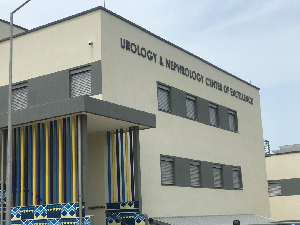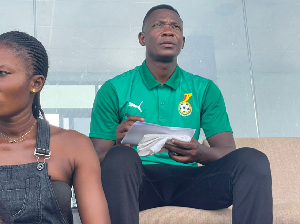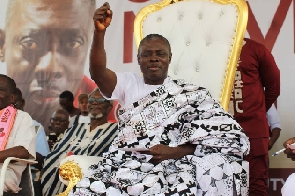Business News of Tuesday, 3 December 2013
Source: B&FT
Long way to the Eco as convergence remains elusive
Ghana is set to miss key convergence indicators necessary for a common currency in the West Africa Monetary Zone (WAMZ), which could prove to be a further drawback on the bumpy road to creating a second monetary union in the West African sub-region by 2015.
The ceiling on inflation target and budget deficit criterion are projected to be missed, while the floor on foreign exchange reserves - which was below the targetted three months of import cover as at the end of November - looks likely to be missed as demand for foreign exchange is expected to surge in light of the Christmas festivities.
According to government's projections, only the central bank's financing of the budget deficit will be met by end of the year. A Senior Fellow of the Institute of Economic Affairs, Dr. J.K. Kwakye, said the economy requires bold decisions to bring the convergence criteria in line to make a common currency feasible.
“High inflation is a persistent problem in Ghana. We have long been in breach of the WAMZ convergence criterion...it will take fundamental transformation of the economy to address supply constraints, and sustained macroeconomic stability to tame inflation in the country.
“Moreover, the deficit is miles away from the WAMZ convergence target of 4%. We will not even get to this target by 2016 as we are aiming at 6% deficit by that year. Achieving lower deficits requires farther- reaching revenue and expenditure reforms than envisaged,” he said.
The WAMZ includes Ghana, Nigeria, Liberia, Sierra Leone, The Gambia and Guinea; and as of June this year, only Nigeria had achieved all the primary convergence criteria and three of the secondary convergence criteria for a common currency.
The President, John Mahama, last week assured that Ghana will lead the process to attain monetary convergence by countries in the WAMZ by 2015, as well as a common currency in the sub- region by 2020.
The government has forecast end-year inflation next year at 9.5 percent, with the budget deficit shrinking to 8.5 percent of GDP from a projected 10.2 this year. Ghana, which is the second-biggest economy in the WAMZ, achieved three of the four primary convergence criteria at the end of 2011 with single-digit inflation of 8.6%, international reserves covering 3.2 months of imports, and a central-bank deficit financing ratio within the 10% limit.
However, the country's performance worsened in 2012 when it achieved only two - inflation and international reserves - of the primary criteria, and it is set to meet only one of the criteria this year.
Other WAMZ members have had a similarly inconsistent record with regard to the criteria for convergence, raising serious questions about the political will to launch the common currency known as the Eco. Most analysts believe apart from the lack of will among ECOWAS governments, the euro-zone's problems will now dampen the aspiration to have the Eco at any time in the near-future.
It is now feared the 2020 target of having the common currency for the sub-region will be missed, as central banks in member-countries have been asked to re-strategise on how to create a second monetary zone to avoid a situation similar to the recent euro-zone crisis - wherein some countries have been unable to re-finance their government debt without the assistance of third parties, and wherein banks are undercapitalised and have faced liquidity problems.
The ECOWAS commission admits now that it was probably jumping the gun by neglecting to ensure that first and foremost true integration - more intra- regional trade, a robust Customs regime, freer movement of people and goods - was achieved.
ECOWAS's French- speaking countries already have a common currency, the CFA, and the plan was that the English-speaking side would first introduce the Eco by 2015 before being joined by their Francophone neighbours.










